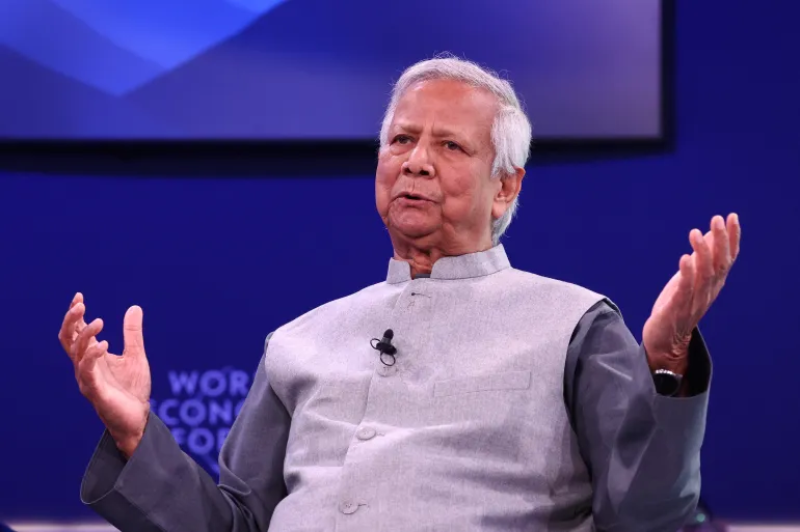- UN aid teams plead for access … Gazans shot collecting food |
- June 2026 Polls Deadline, A Defining Moment for Bangladesh |
- UN Envoy Urges Israel to End Strikes, Ease Gaza Starvation |
- 1.5°C Climate Limit Likely to Be Breached by 2029: WMO |
- Election by June next year, Yunus tells Japan’s Taro Aso |
Protests escalate in Bangladesh under Yunus-led govt

Widespread protests intensified across Bangladesh on Monday as government primary school teachers joined public sector workers in opposing the interim administration led by Nobel Peace Prize laureate Muhammad Yunus.
Yunus, 84, assumed leadership in August following deadly student-led demonstrations that led to the departure of former Prime Minister Sheikh Hasina. Since then, the caretaker government has faced mounting pressure from civil servants, teachers, political parties, and the military amid a tense political transition.
Anger erupted after the government issued an ordinance on Sunday allowing the Ministry of Public Administration to dismiss public servants for misconduct without due process. Civil servants described the measure as "repressive" and continued their protests for a third straight day, calling for its immediate repeal.
At the same time, thousands of primary school teachers began indefinite work abstention, demanding salary increases.
In response to protests by employees of the National Board of Revenue (NBR), the government withdrew an earlier order to dissolve the tax authority and restructure it under the finance ministry. The strike by NBR staff was subsequently called off.
Uncertainty deepened last week when a prominent student leader claimed that Yunus might step down if political parties failed to reach consensus on electoral reforms and a timeline for national elections. However, Planning Adviser Wahiduddin Mahmud rejected the suggestion, stating, “We are not going anywhere until our mission is complete.”
The interim government is under increasing pressure to balance reform with the demand for timely elections. Yunus has proposed holding elections by June 2026, but opposition parties, particularly the Bangladesh Nationalist Party (BNP) led by former Prime Minister Khaleda Zia, are pushing for polls by December 2025.
Army Chief General Waker-Uz-Zaman added to the mounting pressure last week by publicly calling for elections to be held in December, voicing frustration with the ongoing political crisis.
In a flurry of weekend diplomacy, Yunus convened an emergency meeting of his Advisory Council and held discussions with key political stakeholders, including the BNP, Jamaat-e-Islami, the student-led National Citizen Party, and leaders of other political parties.
“We are in a war-like situation,” said Yunus’ press secretary on Sunday. “After the banning of Awami League activities, attempts are being made to destabilise the government. We must overcome this crisis.”
Earlier this month, the registration of the Awami League, the party of former Prime Minister Hasina, was suspended—effectively barring it from contesting in the upcoming election.

